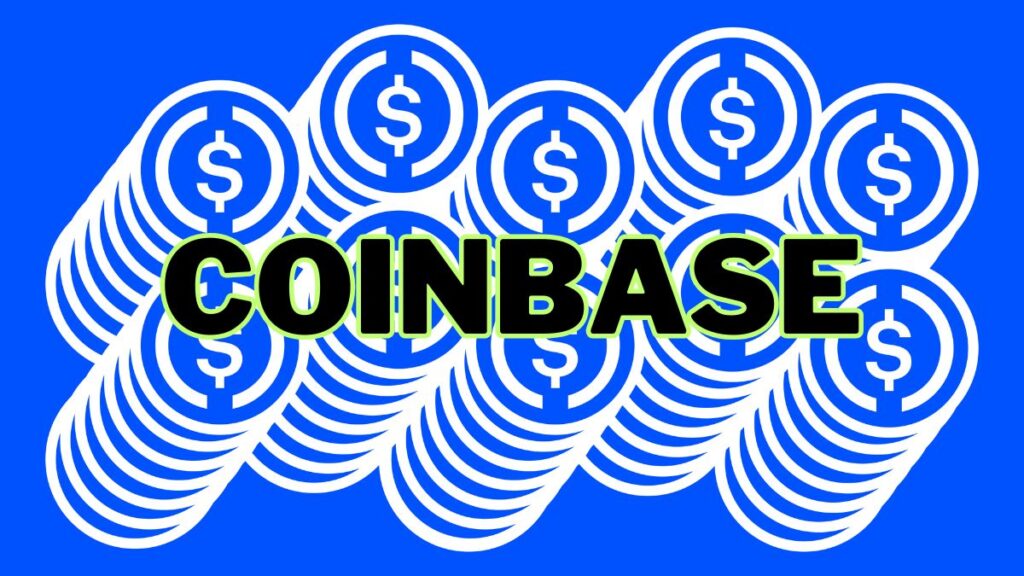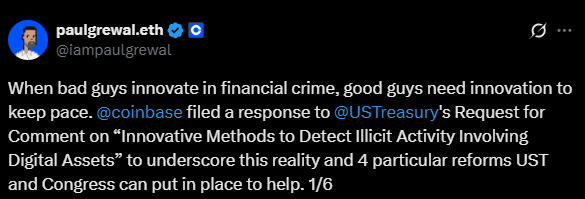TL;DR
- Coinbase has urged the U.S. Treasury to reform AML regulations, arguing that the 1970 framework is outdated and exposes personal data.
- The company proposed creating regulatory testing zones to evaluate AI and blockchain-based compliance tools.
- It also suggested recognizing decentralized identities and zero-knowledge proofs as valid verification methods.
Coinbase has called on the U.S. Department of the Treasury to carry out a comprehensive reform of anti–money laundering regulations, arguing that the current framework, created over fifty years ago, no longer fits the realities of today’s digital financial system. The company said the existing rules are ineffective, expose personal data, and overwhelm regulators with low-value reports without improving the detection of financial crimes.
In its 30-page response to the Treasury’s public request for input on “Innovative Methods to Detect Illicit Activity Involving Digital Assets,” Coinbase argued that technology should form the foundation of a new regulatory approach. The company’s Chief Legal Officer, Paul Grewal, stated that when criminals innovate, institutions must do the same—and regulation cannot remain anchored to laws written in 1970, such as the Bank Secrecy Act.
What Is Coinbase Proposing?
The company proposed the creation of regulatory testing zones—or safe harbors—where firms could develop compliance tools based on artificial intelligence and automated analytics. According to the document, this model would allow regulators to evaluate the effectiveness of new systems without exposing companies to penalties for technical noncompliance during the experimental phase.
Coinbase also suggested that decentralized identities (DIDs) and zero-knowledge proofs (ZKPs) be recognized as valid mechanisms for verifying user identity. In its view, these technologies would enhance privacy without weakening anti–money laundering controls, reducing the need to collect and store massive amounts of personal information.
Another pillar of its proposal is the adoption of the “Know Your Transaction” (KYT) model, which relies on blockchain analytics. Coinbase said this approach enables more precise tracking of illicit financial flows than the traditional methods used for bank accounts.
The company also called for stronger public–private cooperation through regulatory sandboxes, where institutions could test new compliance models before formal implementation. Success, it argued, should be measured by the actual reduction in financial crime, not by the number of reports generated.
Debate in Congress
Congress is currently debating a regulatory framework for decentralized finance. Some lawmakers are pushing for tighter oversight of the DeFi economy, while industry leaders warn that excessive regulation could stifle innovation. Coinbase is positioning itself as a middle ground, advocating for a balance between compliance and technological progress













